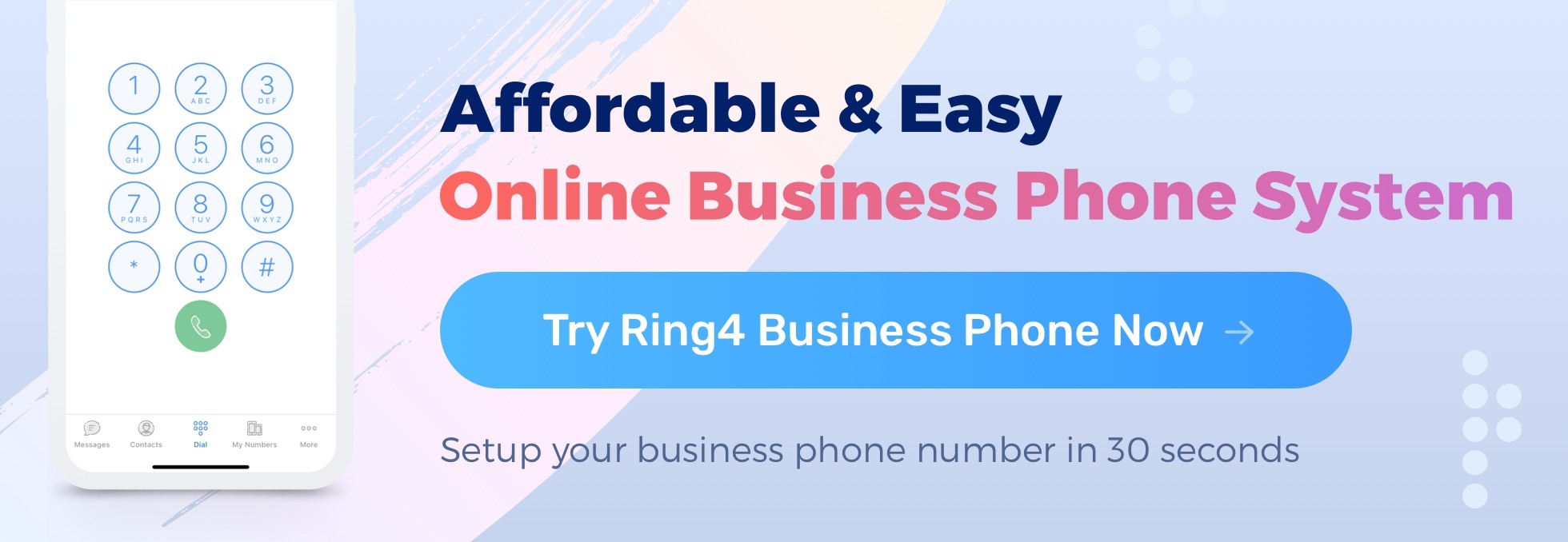Communication is the key to success in many companies. The transportation and logistics industry is no exception.
Thanks to VoIP, businesses in this industry can take advantage of cost-effective and versatile communication solutions.
VoIP provides a range of features helpful for streamlining communication processes and enhancing productivity, allowing companies to stay ahead of the competition.
In this post, we will explore 10 uses of VoIP for transportation and logistics companies, highlighting the benefits and potential of this technology in optimizing communication and increasing efficiency in the industry.
Top 10 Uses of VoIP for the Transportation Industry
From keeping drivers in contact with their dispatcher and other personnel to the significant cost savings compared to other phone options, here are 10 ways that VoIP can be used in the transportation industry:
1.
VoIP technology can be used by the transportation industry to stay in touch with their drivers and customers. This can help them track deliveries, monitor shipments, provide customer service, and relay important updates in a timely manner.
VoIP enables transportation and logistics companies to communicate with their drivers and customers in real-time. What does this mean? Essentially, it means they can make calls, send messages, and host video conferences online. VoIP removes geographic limitations and reduces what would otherwise be expensive phone bills.
Transportation companies can easily stay in touch with their drivers and track the status of deliveries.
Thanks to mobile VoIP solutions like Ring4, drivers can use their smartphones or tablets to communicate with dispatchers and provide updates on:
- their location,
- estimated time of arrival, and
- any issues they encounter during transit.
With VoIP for transportation logistics companies, it’s easier to:
- keep track of your fleets,
- manage resources more efficiently, and
- respond quickly to any delays and/or problems.
If that wasn’t enough, VoIP can also help transportation companies provide better customer service. Simply enabling your employees to easily communicate with customers in a personalized fashion can improve your customer satisfaction rating.
Features such as call routing, call forwarding, and voicemail all help ensure customer inquiries are promptly addressed. VoIP technology also allows for advanced call analytics, which can help companies identify areas for improvement and optimize their customer service processes.
2.
VoIP can be used to provide customers with real-time updates on their shipments.
Utilizing VoIP technology allows transportation companies to provide their customers with instantaneous information about the status and location of their shipments. This can be achieved through:
- text messages,
- automated emails,
- personalized calls, etc…
By leveraging VoIP, customers can receive real-time updates on their deliveries, including:
- estimated delivery times,
- delivery confirmation, and
- alerts for any unexpected delays or issues.
Simple steps like this enhance the customer experience by providing transparency. It can also help build trust and loyalty.
3.
Businesses in the transportation industry can use VoIP to provide enhanced customer service, such as live customer support and chat services.
The transportation industry is highly competitive, and providing exceptional customer service is crucial for businesses to stay ahead. With VoIP technology companies can offer various customer support services that were previously difficult to provide with traditional phone systems.
For example, businesses can set up live chat support services, which enable customers to quickly connect with support agents, ask questions, and receive immediate help. This feature is particularly useful for customers who prefer to communicate via text rather than voice calls.
VoIP also provides the ability for live customer support services, which allow customers to speak to a support agent in real-time. This can be especially important in situations where customers need urgent assistance, such as tracking a lost shipment or resolving a delivery issue. By leveraging VoIP, businesses can provide personalized and efficient customer service, which can help to:
- build a positive reputation,
- enhance customer loyalty, and
- increase overall satisfaction.
4.
VoIP can be used for remote office communications, allowing transportation companies to collaborate with their employees even when they are on the go.
VoIP technology offers transportation companies flexible and effective communication options with their in office and remote employees. This is especially important for businesses in the transportation industry, where employees may be spread out across different locations and time zones.
VoIP enables remote workers access to the same communication tools and resources as their in-office colleagues as well (i.e. video conferencing, screen sharing, and file sharing). This helps ensure everyone is on the same page and can work together seamlessly, regardless of location. VoIP can also help reduce travel costs and save time, as employees can participate in meetings and collaborate on projects without being physically present in an office.
5.
Transportation companies can use VoIP to reduce their phone bills, as VoIP services are usually cheaper than traditional phone lines.
One of the major benefits of VoIP technology for transportation companies is its cost-effectiveness.
VoIP services are generally more affordable than traditional phone lines, as they use the internet to transmit voice and data instead of relying on traditional telephone networks.
In addition to lower costs, VoIP also offers greater flexibility and scalability, as businesses can easily add or remove phone lines as their needs change. Furthermore, many VoIP service providers offer a range of features and tools that can help businesses improve their communication processes (i.e. call forwarding, voicemail transcription, and conference calling).
By using VoIP, transportation companies can not only save money but also enhance communication capabilities and streamline operations.
6.
VoIP can also be used for conference calls, allowing transportation companies to communicate with multiple parties at once.
VoIP technology is also great for conference calls, as it allows transportation companies to speak with multiple parties at once. This is useful when coordinating with different teams or stakeholders, as it eliminates the need for in-person meetings or playing phone tag.
Participants can join VoIP conference calls from anywhere with an internet connection, using their phones, laptops, or other mobile devices. This makes it easy for transportation companies to connect with employees, customers, and partners anywhere in the world. Many VoIP providers also offer features like screen sharing and recording. These features can enhance collaboration and productivity during conference calls.
Put another way, VoIP conference calls offer a convenient and cost-effective way for transportation companies to communicate and work more efficiently.
7.
VoIP can be used to provide GPS tracking of deliveries and shipments, helping transportation companies to optimize their routes.
Thanks to VoIP, businesses can monitor the location of their vehicles and goods in real-time, using data from GPS-enabled devices. By using VoIP for GPS tracking, transportation companies can optimize their routes, reducing delivery times and fuel costs. This can also help to improve customer satisfaction, as customers can be provided with more accurate delivery estimates and real-time updates on the location of their shipments. Furthermore, VoIP-based GPS tracking can also help to improve safety, as businesses can monitor driver behavior and respond quickly to any potential issues or emergencies.
8.
VoIP can be used to provide on-site customer support, allowing transportation companies to respond quickly to customer requests.
VoIP technology is also useful for providing on-site customer support, which can be essential for transportation companies to respond quickly to customer requests. With VoIP, companies can set up a virtual support center where customers can connect with live agents for assistance. This can be done through:
- voice calls,
- video chats, or
- text chats.
By using VoIP for on-site customer support, transportation companies can provide faster and more personalized service. Speed and care both help to improve customer satisfaction. Moreover, VoIP-based customer support can also help businesses to reduce costs such as physical support centers and excessive staffing.
9.
VoIP can be used to record conversations, allowing transportation companies to review customer interactions and provide better service.
VoIP technology can be used by transportation companies to record conversations between customers and agents. By recording these interactions, companies can review them later to gain insights into customer needs and preferences, as well as identify areas for improvement in their customer service processes. VoIP-based call recording can also be useful for training new agents, as they can listen to past calls to learn how to handle different situations and provide effective solutions. Additionally, call recording can help to ensure compliance with legal and regulatory requirements, as businesses can use it to verify customer consent or resolve disputes.
10.
VoIP can be used to integrate with other business systems, such as billing and accounting systems, to provide a more efficient workflow.
VoIP technology can be integrated with other business systems, such as billing and accounting software, to provide a more streamlined workflow for transportation companies. This integration allows data to be transferred seamlessly between different systems, reducing the need for manual data entry and minimizing errors. By using VoIP to integrate with other business systems, companies can improve their efficiency and accuracy, while also reducing administrative costs. Moreover, VoIP integration can help businesses to automate tasks and workflows, such as generating invoices or updating customer records. This frees up employees' time to focus on more strategic tasks and enhances overall productivity.
Conclusion and Next Steps
In conclusion, VoIP technology has transformed the way the transportation industry communicates and operates. With its numerous benefits and cost-effective solutions, it has become an essential tool for companies looking to enhance their operations and provide better customer service. By using VoIP, transportation companies can stay in touch with their drivers and customers, provide real-time updates on shipments, and reduce their phone bills. They can also collaborate remotely with their employees, conduct conference calls, and provide on-site customer support. Additionally, VoIP enables companies to track deliveries and shipments using GPS technology, record conversations for better customer service, and integrate with other business systems for a more efficient workflow.
Overall, VoIP is a powerful and versatile technology that transportation companies can use to optimize their operations, increase efficiency, and provide exceptional customer service. Want to learn what VoIP can do for your business? Click here to try Ring4’s business phone system for free!

